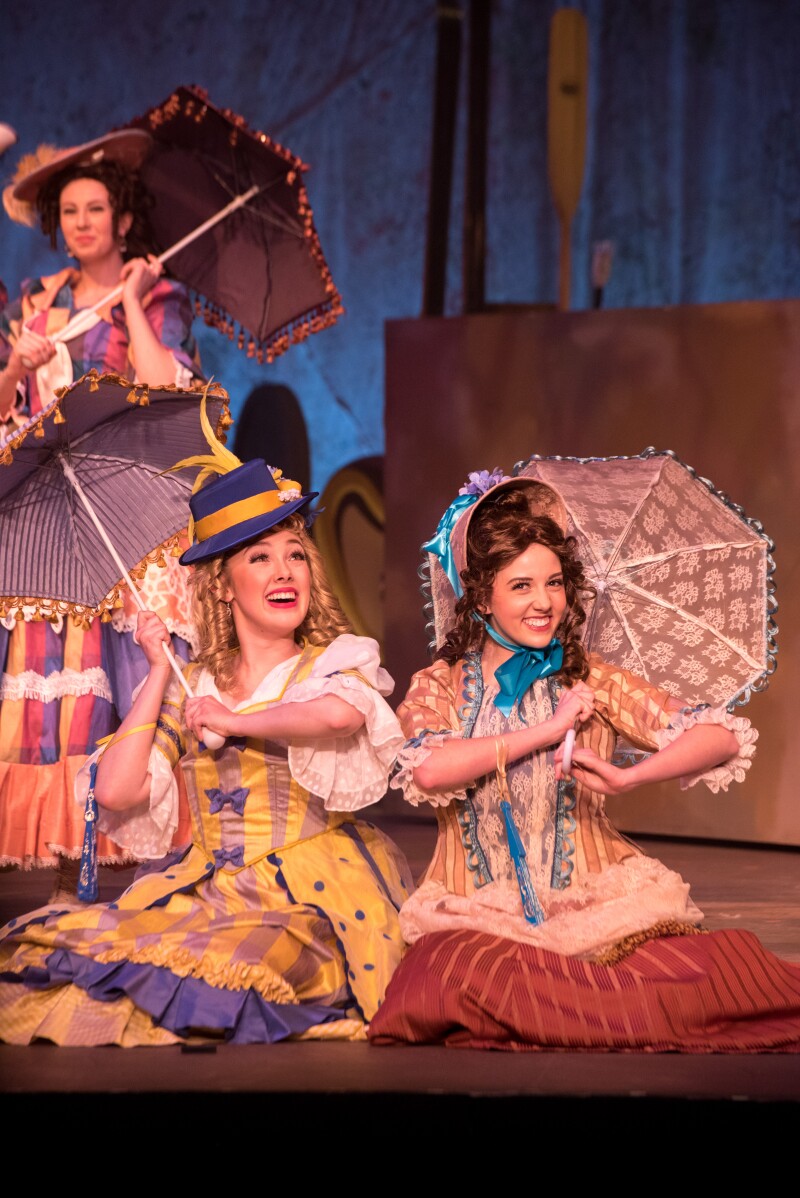Audition Information

Although anyone can audition for a production, priority will be given to on-track Theater majors. Audition material varies for each production.
-Come to auditions prepared. Arrive several minutes early, be prepared to ask questions and answer questions about your schedule.
-Come dressed in comfortable, neat, flattering clothes that allow you to move freely. Bulky, loose clothing is not appropriate.
-Avoid "costumes."
-Minimize jewelry.
-Wear comfortable, lightweight shoes. Flip-flops are not appropriate.
-Style your hair so that it flatters your face, not hides it.
-Come to auditions prepared. Arrive several minutes early, be prepared to ask questions and answer questions about your schedule.
-Come dressed in comfortable, neat, flattering clothes that allow you to move freely. Bulky, loose clothing is not appropriate.
-Avoid "costumes."
-Minimize jewelry.
-Wear comfortable, lightweight shoes. Flip-flops are not appropriate.
-Style your hair so that it flatters your face, not hides it.
Tips for a Great Audition
Guidelines
Select the Right Material
Things to Avoid
Analysis of Material
Memorize the Material
Your Audition
Guidelines

- For most auditions, students are expected to use a prepared monologue. While not preferred, students may also bring a rehearsed reading for audition.
- Come prepared by reading the play and being familiar with the characters beforehand. Read the whole play more than once to ensure that you're familiar with the actions, context, and characters.
- Clearly understand the audition guidelines and go over audition notice to review details.
Select the Right Material

- Find audition material that you could be appropriately cast for today.
- Material needs to coincide with your gender, age, vocal range, emotional range, and be within the scope of your movement skills.
- Material needs to be active, has a clear beginning and moves to a distinct ending.
- Selected monologues need to be from plays by established playwrights.
Things to Avoid

- A monologue from the show you are auditioning for, unless audition notice says otherwise.
- Material that you have performed in a previous production.
- Pieces that need excessive cutting or reworking to make sense.
- Material from a book of audition monologues and not from plays.
- Self-written material.
- Material that requires a dialect. Use standard stage English for the audition.
- Overly sentimental, shocking, self-indulgent, or "memory pieces."
- Chronically overdone monologues (like Sophie from The Star-Spangled Girl, "Mr. Cornell, I have tried to be neighborly"). For more ideas of what not to prepare, google "overdone monologues."
- Audition pieces with excessive strong language, profanity, content that may embarrass you or the auditors, or material that goes against the Honor Code.
Analysis of Material

- Ensure that the words are clear - no matter the objective, obstacle, or action, read the audition material several times to seek understanding of what the author is saying and what the character wants.
- Look up all words you don't understand of that appear to be used incorrectly (most times they're not) - Look up words you think you know. You might find something unexpected that will ad depth and a different angle to your audition.
- If it's in verse, scan it for meter. Find the operative words. Identify the most important images, and decide how best to convey them during the audition (inflection, emphasis, word coloration, etc).
- Look for figurative language, repetitions, allusions, etc. Look them up if you don't understand them.
- As you read ask yourself these questions - "Why would the character say that right now?" "How does s/he know that information?" Make specific choices about those answers.
- Time yourself. If necessary, cut the audition speech to fit the time requirements. (You will probably need to speak more slowly to be understood during the audition. Don't go over time.)
Memorize the Material

- Memorize and rehearse your piece exactly as you intend to perform it during the audition.
- DO NOT MEMORIZE THE NIGHT BEFORE AND EXPECT TO BE GOOD. It takes several hours/days/weeks - excluding analysis and memorization - to prepare an exceptional audition monologue.
- Memorize all the words correctly. Check frequently to make sure you haven't interpolated or paraphrased lines.
- Memorize objectives and movement.
- When memorizing, say the monologue out loud. Don't let the audition be the first time you perform the piece out loud or in front of someone.
- While you are memorizing, also ask yourself what this character and you have in common. When did you feel the way s/he seems to be feeling? When were you in a similar circumstance where you had a similar objective? Use these memories to help you find different tactics that you, as the character, might employ to get what you want.
- Practice the monologue in different places, while engaged in different physical activities.
- Feel free to be bold in the choices you make about the character.
- Avoid using props during the audition.
- Choose to audition standing and to move rather than perform the piece sitting in a chair or on the floor.
- Find appropriate physical, emotional, and vocal levels.
- Know your audience. If the monologue is directed towards the general audience, choose a specific person or group whom you want to affect and what you want them to do.
- If you do not have time to prepare the monologue completely, it's better to read it for your audition, rather than stumble through or ask to be prompted. But, if you have to read, rehearse the reading as much as possible, get your eyes off the page, and make connections with the images.
Your Audition

- Wait for the director to acknowledge you.
- This is professional, not personal. Avoid excessive familiarity, even if you are life-long friends.
- Assess the acoustic qualities of the performance space and make choices regarding how much vocal energy you will need to be heard. The director will be listening to your vocal quality, assessing your stage presence and projection, and observing your movement.
- When you get up to perform, introduce yourself, the title of the play, and the character, but don't describe the scene unless asked otherwise.
- Take time to connect to your invisible partner. Place that other character out in front of you and a little to one side. Do not set a chair down near you and talk to the chair, nor should you use the people auditioning you as the other character by speaking to them directly.
- Keep your face in view as much as possible. Avoid excessive profile or upstaging yourself. If the audition is being filmed, be careful not to step out of frame. It's appropriate to ask where the frame is or to check if you are in the light if you are unsure.
- If you need to start the audition over: stop. Look at the director. Ask if you can start over. Wait for acknowledgment that it is ok.
- When you finish, pause and say, "Thank you."
- Exit the audition with confidence!